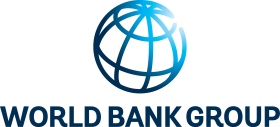As market reforms to the Mongolian economy continue and the country enjoys rapid economic growth, the environment has entered a period of unprecedented pressure. Mining, infrastructure development and tourism development, in particular, are undergoing rapid expansion, and all pose risks to Mongolia's globally important biodiversity. In order to strengthen its safeguard review process in Mongolia, specifically implementation of its operational policy on natural habitats, the World Bank contracted Birdlife Asia to identify important areas of natural habitat in the country, and assess the extent to which these areas overlap with development plans. Birdlife Asia undertook this study in close collaboration with the Wildlife Science and Conservation Center (WSCC) of Mongolia. The study looked at the extent of overlap between sites of conservation importance on the one hand, and mining licenses, major infrastructure plans, and tourist camp locations on the other. It determined the scale of overlap at the national level, provided a strategic overview of potential impacts, and identified particular sites where there is cause for concern. Recommendations were made for how environmental issues arising might be addressed, including examples of guidance and best practice from outside of Mongolia.
Authors and Publishers
BirdLife Asia
World Bank Group (WB)
The World Bank is a vital source of financial and technical assistance to developing countries around the world. We are not a bank in the ordinary sense but a unique partnership to reduce poverty and support development.
Data provider
World Bank Group (WB)
The World Bank is a vital source of financial and technical assistance to developing countries around the world. We are not a bank in the ordinary sense but a unique partnership to reduce poverty and support development.


